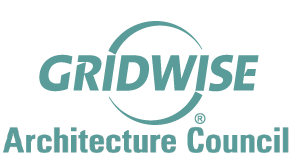Grid-Interop 2012
Irving, TX December 3-6, 2012

Driving to Grid 2020
Grid-Interop brought together a broad audience from both the government and the technical community, including key players from the energy utilities, software, cable, semiconductor, telecommunications and electricity consumer sectors. The birthplace of the Smart Grid Interoperability Panel, Grid-Interop continues to focus on smart grid interoperability standards and technologies—defining the interoperability framework necessary for smart grid to flourish.
With the guiding principle of implementing interoperability through collaboration, Grid-Interop brings together a true cross-section of industry stakeholders to ensure rapid development and implementation of smart grid interoperability standards.
Grid-Interop creates dialogue among the key stakeholders, shaping and driving the progress of standards development, including:
- standards development organizations
- businesses that use and implement these standards
- regulators that oversee the implementation of standards-based technologies
- product designers, system integrators, and consultants who put the standards to work in real-life applications
In addition to providing a clear snapshot of industry developments around interoperability standards to date, Grid-Interop provides a unique opportunity and forum to have your voice heard at this most critical time. Grid-Interop continues to offer an opportunity to discuss new and innovative ways to improve smart grid interactions and to participate in actions that shape the future of interoperability and to advance the Smart Grid Interoperability Roadmap from concept to reality.
Getting Beyond Fear, Uncertainty, and Doubt
At Grid-Interop 2012, several milestones were passed. The meeting produced a 10-year strategic plan for grid interoperability, celebrated the already achieved successes in that area and laid out a vision for organizations driving interoperability as they shift their focus in 2013. Lastly, a visual display of interoperability in action was also displayed.
This year’s Grid-Interop, the sixth meeting so far, brought together smart grid players and stakeholders who discussed what’s working today and mapped out a future vision for standards and interoperability during an industry-defined time. The GWAC forum’s goal of getting beyond current fear, uncertainty and doubt was accomplished through four days of technical paper presentations, plenary speakers and roundtables, workshops and boot camps, Plug-In activities and a GWAC meeting. This year’s plenary speakers and roundtables included opening comments from Jim Greer (Sr. Vice President and Chief Operating Officer, Oncor Electric Delivery), a utility roundtable lead by Chris Irwin focused on Looking Forward to Grid 2020, the GWAC Foundation Session that also focused on moving to grid 2020, dinner speaker Colin Harrison (IBM Distinguished Engineer, IBM), and the closing Standard Developing Organizations (SDO) Roundtable led by George Arnold.
As in Grid-Interop 2011, this year’s boot camps and workshops focused on helping attendees to get a better understanding of the basic, yet very complicated, building blocks for creating an interoperable system. The 2012 boot camps include sessions on Architecture, Testing & Certification, Transactive Energy, and Cloud Computing, while the workshops focused on a Technology Adoption Roadmap, Information for Decision Makers, and the GWAC Information Interoperability Model. These sessions were well attended with an average of about 25 attendees per session.
The Grid-Interop 2012 Plug-In session was slightly altered from the 2011 activity. This year we invited different associations to present interoperability within each association’s domain. We were very pleased to have Z-wave, MultiSpeak, and OpenADR participate this year. The three associations were represented by eleven companies, and were able to demonstrate interoperability within the association and externally.
Given that Grid-Interop 2012 was held a few weeks after Hurricane Sandy, the GWAC meeting at the forum was able to focus on the outcome of that event and discuss grid resilience. The discussion focused on how smart grid technology, microgrids, and attention to interoperability can be applied to rebuilding affected elements of the power system to achieve a more resilient system.
More than 100 speakers participated in 30+ panel discussions and dozens of SGIP Working Group and Priority Action Plan (PAP) meetings. You can now download the proceedings, which include the presentations from here.




